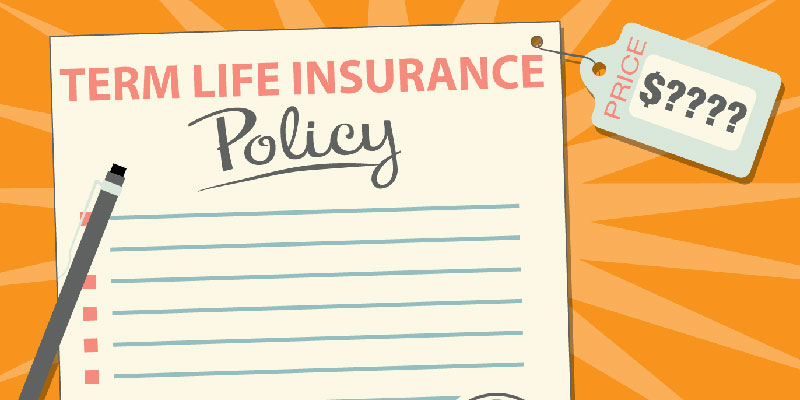
by insurance | Dec 21, 2018 | Life Insurance Quotes
More and more people in the UK are buying life insurance online and the numbers seem to be doubling every two years. The reasons are clear. Prices are lower on the Internet and life insurance is fundamentally a simple insurance product.
Despite the underlying simplicity of life insurance, most web sites channel their online clients through a telephone based help and advice service manned by experienced personnel. They represent your safety net so if a little technical knowledge is called for, help is at hand.
But it’s always a good idea to have a few Top Tips in your back pocket when you’re shopping online for life insurance. They’ll help you ask the right questions and find the best policy.
1. Always have your Life Insurance policy “Written in Trust”.
This means that in the event of a claim, the money goes directly and immediately to the person(s) you nominate when you first take the policy out. It also avoids all possibility of your estate having to pay Inheritance Tax on the proceeds of your policy and that could represent a 40% tax saving !
All you have to do is tell the online brokerage organising your policy that you want your policy”Written in Trust” and the names of the people who the life insurance company pay in the event of a claim. They will then sort it all out for you. The extra good news is that this service is invariably free of charge. So it’s a win win situation and there aren’t many of those around these days !
2. In the early years a Reviewable Life Insurance Policy will be cheaper but a Guaranteed Policy will work out a better buy in the longer term.
With a “Guaranteed Policy” the insurance company guarantees never to increase your policy’s premium.
With a “Reviewable Policy” you agree that your insurance company can review the cost of your policy at regular intervals. But don’t be kidded ‘ in our experience a ‘review’ is just another word for a price increase. After all, who’s ever heard of an insurance company passing up a chance to charge you more! The review intervals are usually between 2 to 5 years but this does vary between insurance companies. You will find the details of the review intervals on the documents sent to you before you accept the insurance these are called The Key Features Documents.
So, comparing otherwise like for like policies, in the early years the premiums for a “Reviewable Policy” will undoubtedly be lower than the premiums for a “Guaranteed Policy”. Thereafter, the premiums for a Reviewable Policy increase eventually catching up with and overtaking, the premium for a “Guaranteed Policy”.
In our experience, you can expect the monthly premiums for a Reviewable Policy to exceed those of a Guaranteed policy in about 7 to 10 years and then within the following 10 years, more than double again. If your budget is currently tight then by all means choose a Reviewable Policy – after all your salary may increase in coming years and ease the strain. On the other hand, if the premiums for a Guaranteed Policy are affordable, we think they represent your best buy.
A footnote. Many insurance companies have stopped offering Guaranteed rates for standalone critical illness insurance policies. This because they have experienced much higher claim rates than they initially expected. However, you may still find a Guaranteed life insurance policy that also provides critical illness cover. As we have explained, Guaranteed rates are especially good value and if you can get a quote for a Guaranteed life policy that includes critical illness cover, you may have a real bargain.
3. Thinking about a Joint Life Insurance Policy?
A Joint Life Insurance policy is usually written on a first death basis. This means that the policy will pay out on the death of the first policyholder, subject to the policy being in force at the time. This leaves the second person uninsured and older. Older people can struggle to get life insurance at an affordable premium, so rather than a Joint Policy consider taking out separate policies now. Overall it will work out a little dearer – but you get twice the cover and double the peace of mind.
4. Taking out a Life Insurance Policy? Now would be an ideal time to include Critical Illness cover.
Are you likely to need Critical Illness Insurance in the future? Yes? Then consider adding it now to the life insurance policy you’re arranging. Why? There are three reasons.
Firstly, a Life Insurance policy combined with Critical Illness cover will work out significantly cheaper than buying two separate policies. Secondly, as we have already explained in the footnote to Tip 2, you may be able to buy a combined Life and Critical Illness policy with a guaranteed premium. That could be e real bargain. Finally, premiums for critical illness cover increase rapidly as you get older so the sooner you take it out, the cheaper it will be.
5. Don’t confuse Terminal Illness cover with Critical Illness cover.
There’s world of difference between Terminal Illness and Critical Illness cover so it’s important to understand the difference.
Terminal Illness cover pays out the insured lump sum if a Medical Doctor diagnoses you with an illness from which the Doctor expects you to die within 12 months. Most good life policies automatically include Terminal Illness cover at no extra cost. It’s basically an early, and welcome policy payout.
A Critical Illness policy pays out the insured lump sum if you are diagnosed with one of a wide range chronic illness and there is no life expectancy criteria. Indeed, with many of the insured illnesses you could expect to survive for many years. For example: certain cancers, heart disease, stroke, multiple sclerosis, loss of speech, sight or hearing, onset of Parkinsons or Alzheimers disease, third degree burns etc. Say you were an engineer aged 40 and you lost your sight. A Critical Illness policy would pay out immediately and that money could well be vital in helping you and your family through many difficult financial years ahead. If you just had Terminal Illness cover there’d be no chance of a payout.
So as you can see, Critical Illness cover is far more comprehensive than simple Terminal Illness cover and for that reason critical illness cover always costs you extra.

by insurance | Dec 21, 2018 | Insurance Guide
Secret #1: Don’t spend too much time on a life insurance quote.
Do not be fooled by the low price quotes you get online – they don’t apply to you unless you are extremely healthy. Statistically only 10% of people who apply actually get the lowest priced policy. The premium you end up paying has nothing to do with the initial quote you get online or from an agent. It is amazing to me how often I see people getting duped by an agent who quotes company X at a lower price than another agent.
Life insurance policies are the same price no matter who you buy from! One agent or website quoting a lower premium means nothing. Prices for any given policy is based on your age and health. There are a few exceptions to this but that is beyond the breadth of this article.
Most life insurance companies have 10-20 different health/price ratings and no agent or website can assure you the quote they give you is accurate. You have to apply, do a health check, and then go through underwriting (meaning you complete a mini-exam with a nurse in your home and then the company checks you doctor records and reviews and ‘rates’ your health) to get the real price of the policy. Remember that a health rating also factors in your family history, driving record, and the type of occupation you have. Only use quotes to help narrow down your choices to the top companies. You may want to consider a no load or low policy. The more that you save on commissions the more money builds up in your policy. You can even buy term insurance no load, and save a lot on premiums. You will not get the help of an agent, which may be worth something if they are very good.
The most important factor determining price is matching your particular health history with the company best suited for that niche. For instance company X might be best for smokers, company Y for cancer survivors, Company Z for people with high blood pressure, etc.
Secret #2: Ignore the hype on term versus cash value permanent insurance.
You can go crazy reading what everyone has to say on buying term insurance versus a whole or universal life policy. Big name websites give advice that I think borders on fraudulent. Simply put there is NO simple answer on whether you should buy permanent cash value policies or term insurance.
But I do think there is a simple rule of thumb – buy term for your temporary insurance needs and cash value insurance for your permanent needs. I have read in various journals and run mathematical equations myself which basically show that if you have a need for insurance beyond 20 years that you should consider some amount of permanent insurance. This is due to the tax advantage of the growth of the cash value within in a permanent policy. I am divorced and have taken care of my children should I die. I probably no longer need as much insurance as I now have. I have earned a great return on my policies and have paid no taxes. I no longer pay the premiums, because there is so much cash in the policies. I let the policies pay themselves. I would not call most life insurance a good investment. Because I bought my policies correctly, and paid almost no sales commissions my policies are probably my best investments. I no longer own them, so when I die my beneficiaries will get the money both tax free, and estate tax free.
Since most people have short term needs like a mortgage or kids at home they should get some term. Additionally most people want some life insurance in place for their whole life to pay for burial, help with unpaid medical bills and estate taxes and so a permanent policy should be purchased along with the term policy.
Secret #3: Consider applying with two companies at once.
Life insurance companies really don’t like this “trick” because it gives them competition and increases their underwriting costs.
Secret #4: Avoid captive life insurance agents.
Look for a life insurance agent who represents at least fifty life insurance companies and ask them for a multi company quote showing the best prices side by side. Some people try to cut the agent out and just apply online. Just remember that you don’t save any money that way because the commissions normally earned by the agent are just kept by the insurance company or the website insurance company without having your premium lowered.
Plus a good agent can help you maneuver through some of the complexities of filling out the application, setting up your beneficiaries, avoiding mistakes on selecting who should be the owner, the best way to pay your premium, and also will be there to deliver the check and assist your loved ones if the life insurance is ever used.
Secret #5: Consider refinancing old life policies.
Most companies won’t tell you but the price you pay on your old policies has probably come down dramatically if you are in good health. In the last few years life insurance companies have updated their predictions on how long people will live. Since we are living longer they are reducing their rates rather dramatically. Beware the agent may be doing this to obtain a new commission, so make sure it really makes sense.
I really am amazed at how often we find that our client’s old policies are twice as expensive as a new one. If you need new life insurance consider “refinancing” your old policies and using the savings on the old policies to pay for the new policy – that way there is no extra out-of-pocket costs. We like to think of this process as “refinancing your life insurance” – just like you refinance your mortgage.
Secret #6: Realize life insurance companies have target niches that constantly change.
One day company ‘X’ is giving good rates to people who are a little overweight and the next month they are super strict. Company ‘Y’ might be lenient on people with diabetes because they don’t have many diabetics on the books – meaning they will give good rates to diabetics. At the same time company ‘W’ might be very strict on diabetics because they are insuring lots of diabetics and are afraid they have too big of a risk in that area – meaning they will give a bad rate to new diabetics who apply.
Unfortunately when you are applying a life insurance company will not tell you, “Hey, we just raised our rates in diabetics.” They will just happily take your money if you were not smart enough to shop around. This is the number one area a smart agent can come in handy. Since a good multi-company agent is constantly applying with multiple companies he or she will have a good handle on who is currently the most lenient on underwriting for you particular situation. The problem is that this is hard work and many agents are either too busy or not set up to efficiently shop around directly to different underwriters and see who would make you the best offer. This is a lot harder than just running you a quote online.
Secret #7: Don’t forget customer service.
Most people shopping for insurance focus on companies with the lowest price and the best financial rating. Unfortunately I know of some A+ rated companies with low rates who I would not touch with a ten foot pole simply because it’s easier to give birth to a porcupine backwards then it is to get customer service from them.
Before I understood this I used a life insurance company that gave a client a great rate but 2 years later the client called me and said, “I have mailed in all my payments on time but just got a notice saying my policy lapsed.” It turned out the company had been making lots of back office mistakes and had lost the premium payment!
We were able to fix it because we caught the problem so early. But if the client happened to have died during the short period the policy had lapsed, his family might have had a hard time proving that the premium had been paid on time and they might not have received the life insurance money – a loss of hundreds of thousands of dollars in that case.
Secret #8: Apply 3-6 months ahead of the time you need the insurance if possible.
Don’t be in a hurry to get a policy if you already have some coverage in force. But go ahead and apply right away knowing that you might need months to shop around if the first company does not give you a good rate. Even though the life insurance industry is getting more automated your application will still often be held up for weeks or months while the insurance company waits on your doctor’s office to mail them a copy of you medical records.
If you are in a hurry and buy a quickie ‘no-underwriting’ policy without going through the full health checks and underwriting that a mainstream life insurance company requires, you will end up paying 20%-50% more because the insurance company will automatically charge you higher rates because they don’t know whether you are healthy or about to die the next day.
Secret #9: Avoid buying extra life insurance through work if you are healthy.
I am sure there are exceptions to this “trick” but I have rarely found one. By all means keep the free life insurance your employer provides. But if you are healthy and you are paying for supplemental life insurance through payroll deduction you are almost certainly paying too much. What is happening is that your ‘overpayments’ ends up subsidizing the unhealthy people in your company who are buying life insurance through payroll deduction.
Usually the life insurance company has cut a deal with your employer and will waive the required health exam for all employees – instead they just average the price for all the employees and offer one or two rates for males or females at any given age. Life insurance companies know they will pick up lots of unhealthy clients this way so they jack up the price on everyone so that the healthy people end up overpaying so that the unhealthy employees get a cheaper policy. Also, unlike the guaranteed term policies which we recommend, most life insurance you buy through work will get more expensive as you get older.
Also group life insurance is generally not portable when you retire or change jobs meaning that when you retire or change jobs you might have to apply all over again even though you will be older and probably not as healthy and risk being turned down for a policy. If the group plan does allow portability they generally limit your conversion choices and force you to go into expensive cash value plans.
I remember helping someone evaluate his supplemental life insurance. He was sure it was a better deal than any policy I could find him. Little did he know that the price of his group plan would go up every year? By the time he retired his premium would have risen to over $10,000/year. I found him a policy for around $1000/year that would never go up. Also, unlike his old group life policy, he could take the individual policy with him when he changed jobs or retired.
Secret #10: Do a trial application on a COD payment basis.
Only send money with the application if you need the life insurance coverage right away. Sending a check with the application is a traditional practice agents used to do – I think mostly because it got them their commissions faster. If you send money with an application you usually get temporary coverage immediately but if you already have plenty of coverage and are just trying to get better rates ask your agent to do a trial application on a COD basis so you only pay once the policy is approved. If you do not send money, and you die before paying for the policy there is no coverage.
Secret #11: Wear your shoes when the nurse measures your height.
When the insurance company sends out the nurse to do your health check try to be as tall as possible if you are overweight? In most states you are allowed to wear shoes and if you are a little overweight your taller height/weight ratio will look a little better to the underwriter who is determining your health rating and policy price. Also do your exam early in the morning with no food in you – this will make your cholesterol count and various health ratios look the best.
Secret #12: Be careful with extra perks and riders.
Most policies come with options like accidental death benefit, child riders, disability riders, return of premium etc. If you do the math on most of these “extras” they usually don’t make smart financial sense. Life insurance companies are out to make money and these riders are usually profitable because they either cover something that rarely happens or they are so stringent that the benefit never gets paid out. Keep things simple and focus mainly on getting a life policy to cover your life without many strings attached. Again a good agent can help you weigh the benefits of the extra riders. But be wary of an agent who tries to tack on every possible extra rider.

by insurance | Dec 21, 2018 | Insurance Guide
Life insurance fraud is a black eye on both life insurance companies and life insurance customers. Both parties have been guilty of life insurance fraud and will be again–especially since, sadly, fraud seems to be on the rise according to most statistical measures.
Research by the non-profit The Coalition Against Insurance Fraud concludes that life insurance fraud committed by all parties costs an average household $1650 per year and increases life insurance premiums by 25%.
Life insurers are most often guilty of insurance fraud in the form of their agents doing “churning”. This is where the agent seeks to cancel your existing life insurance policy and replace it with a new policy that is paid for by the “juice”, or cash value, in your existing policy. Agents do this to earn more commissions for themselves without having to seek new prospects for business. Churning can result in increased premiums for a customer and clearly costs them out of their cash value.
Another insurance fraud practiced by agents, however, is called “windowing”. This is where, being unable to attain a client’s or applicant’s signature on a necessary document but already having that signature elsewhere, the agent holds up a signed document behind the unsigned document, presses it against a window to make the light shine through, and traces over the signature with a pen in order to forge the signature of the client or applicant.
When big name insurance companies have their agents do bad things it makes big headlines, but the fact is that the public is far more guilty of insurance fraud than companies are. And of course making false claims is the thing they do the most, which is why all claims on life insurance death benefit payouts are subject to investigation.
But falsely stating background or financial income information is another form of insurance fraud often engaged in by consumers. They might be embarrassed by their medical history or income, or they may realize that if they tell the truth they will have their coverage diminished or their premiums will be very high. If a life insurance company finds out someone lied on their application they have the right not to pay the claim or not pay the full death benefit depending on the circumstances and the policy.
But there are things that buyers of life insurance can do to protect themselves against insurance fraud, since they don’t have the great investigative resources that life insurance companies do.
Remember, when it comes to life insurance, if it sounds too good to be true, it probably is. There’s no free lunch.
Save all of your life insurance paperwork, including getting receipts for every penny you give your agent, and never ignore any notifications from your life insurance company.
Life insurance is never free and it’s not a pension plan, although certain policies can indeed become self-funding–but they never start off that way.
Never buy any coverage that you feel strongly is unnecessary, never let yourself be pressured, and never borrow to finance life insurance.
Although it can be part of an investment portfolio, life insurance’s number one role is protection against the unforeseen–and most people don’t need life insurance in their later years. It is intended to be temporary.

by insurance | Dec 21, 2018 | Basic Life Insurance Facts
To begin with, you need to understand that life insurance falls into two very broad categories: Whole and term. The basic difference between term and whole life insurance is this: A term policy is life coverage only.
In whole life insurance policy, as long as one continues to pay the premiums, the policy does not expire for a lifetime. As the term applies, whole life insurance provides coverage for the whole life or until the person reaches the age of 100. Whole life insurance policies build up a cash value (usually beginning after the first year). With whole life, you pay a fixed premium for life instead of the increasing premiums found on renewable term life insurance policies. In addition, whole life insurance has a cash value feature that is guaranteed. In term and whole-life, the full premium must be paid to keep the insurance.
With level premiums and the accumulation of cash values, whole life insurance is a good choice for long-range goals. Besides permanent lifetime insurance protection, Whole Life Insurance features a savings element that allows you to build cash value on a tax-deferred basis. The policyholder can cancel or surrender the whole life insurance policy at any time and receive the cash value. Some whole life insurance policies may generate cash values greater than the guaranteed amount, depending on interest crediting rates and how the market performs. The cash values of whole life insurance policies may be affected by a life insurance company’s future performance. Unlike whole life insurance policies, which have guaranteed cash values, the cash values of variable life insurance policies are not guaranteed. You have the right to borrow against the cash value of your whole life insurance policy on a loan basis. Supporters of whole life insurance say the cash value of a life insurance policy should compete well with other fixed income investments.
Unlike term life policies, whole life insurance provides a minimum guaranteed benefit at a premium that never changes. One of the most valuable benefits of a participating whole life insurance policy is the opportunity to earn dividends. The insurance company based on the overall return on its investments sets earnings on a whole life policy. In addition, while the interest paid on universal life insurance is often adjusted monthly, interest on a whole life policy is adjusted annually. Like many insurance products, whole life insurance has many policy options.
Make sure you can budget for whole life insurance for the long term and do not buy whole life insurance unless you can afford it. You should buy all the coverage you need now while you are younger, and if you cannot afford whole life insurance, at least get Term. That is why whole life insurance policies have the highest premiums it is insurance for your whole life, no matter when you pass on. The level premium and fixed death benefit make whole life insurance very attractive to some. Unlike some other types of permanent insurance, with whole life insurance, you may not decrease your premium payments.

by insurance | Dec 21, 2018 | Life Insurance Quotes
Term life insurance is basically a “no frills” type of life insurance. It is a life insurance for a specified duration limit, or time. You buy a specific amount of coverage for a specific time period by signing a contract.
You pay for that coverage period and at the end of the term the policy expires. For example, the term might be until retirement, or until children are grown, or until college is paid for.
Term life insurance is the least expensive available insurance policy and allows you to spend a lot less and use the extra money in a better investment.
It does not build up cash value and the premium normally increases as the policy owner gets older. Usually term life insurance covers a specific term such as term of 1year, term of 20 years or term of 30 years.
If you die while the policy is active, term life insurance provides a stated benefit for it; and your survivors will be paid the agreed upon amount.
However, the policy does not provide any returns beyond the stated benefit and once the policy expires, the insurance coverage ceases and the insurance company keeps the money. Some term insurance policies give you the right to renew at the same rate for multiple years, while others do not. The former are generally a bit more expensive.
Term life insurance is most suitable for you, if you are:
- in need of coverage for a limited period of time,
- young and looking for lower premiums,
- buying a home or car, where the financial burden of a loan will disappear in time.
Term life insurance policies must be renewed when each term ends. Before buying a term life insurance policy, you should ask about the renewal provisions for the protection of your future insurability. There are some typical choices:
- Annual Renewable – the premium go up each year.
- Level Term – the premium stays the same for specific period like 5, 10, 15, or 20 years, then increases sharply.
- Automatic Renewable – you’ll have to pay more for this feature.
Some other options on term life insurance policies may include:
- Re-Entry – it requires a lower premium than an automatically renewable policy. You can renew at the same low rate offers to new customer; but you’ll have to pass a physical examination. If you’ve developed any health problems, your premium could go up and cost more than an
automatic-renewable policy. - Convertable term – you’ll have the option to convert to a whole life insurance policy in later years.





